Results 1 to 8 of 8
 26Likes
26Likes
Thread: First refurb
Threaded View
-
05-13-2020, 10:37 PM #1Member

- Join Date
- Apr 2020
- Location
- CT
- Posts
- 32
Thanked: 0 First refurb
First refurb
I was given this Wade & Butcher Bow from a coworker, so I figured I'd experiment on it. It seems this razor has gone through some changes in its life (looks like someone added crude jimps on the top and bottom, and the shoulder has disappeared). It came to me in ok condition in the rust category, but I never liked the wood handle. So I ordered some camel bone scales that I trimmed up and added the angled ends (don't know if there's a style name for it). I experimented making a brass lined wedge that has changed shape and angles, but tried to keep it as close to the blade as possible. Overall it was a good learning experience that I enjoyed!
-Not sure why some of the pics are upside-down
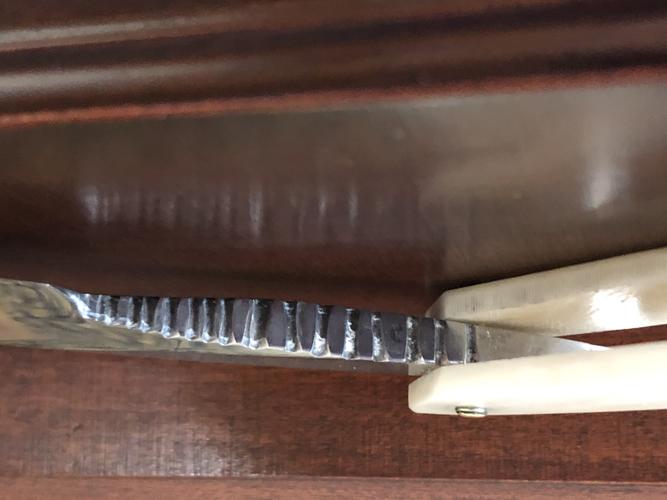
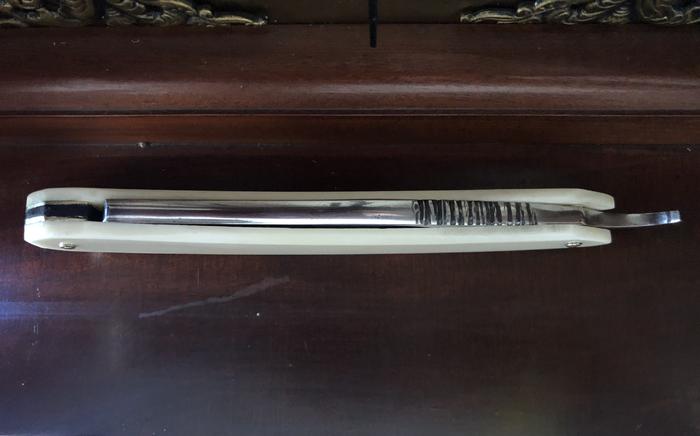
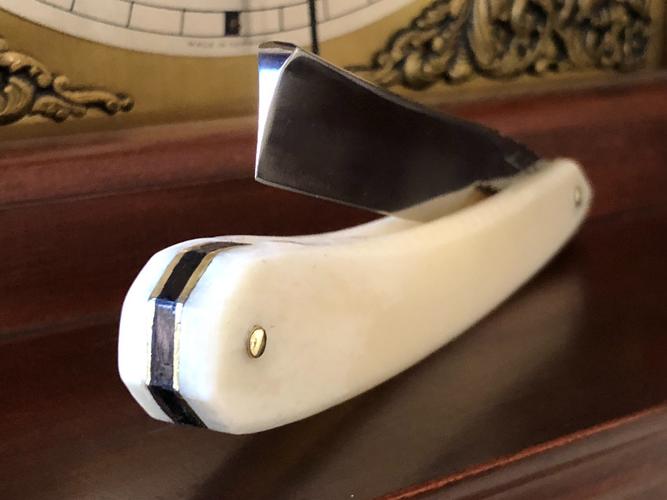
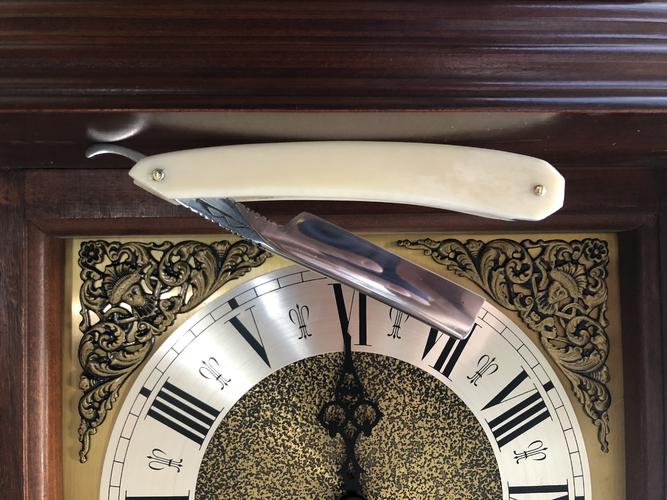
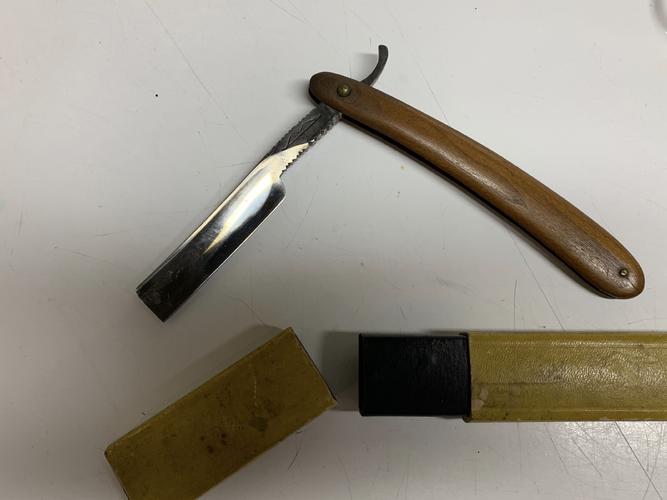



 LinkBack URL
LinkBack URL About LinkBacks
About LinkBacks






 Reply With Quote
Reply With Quote